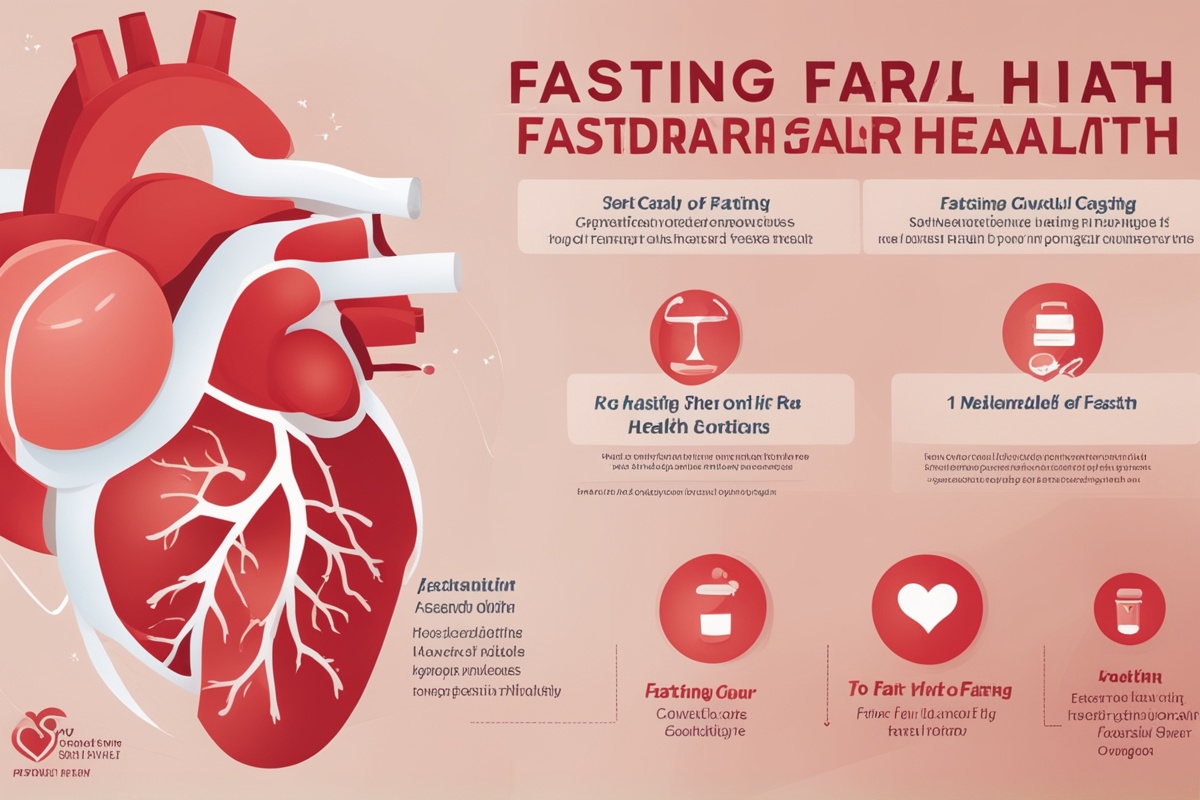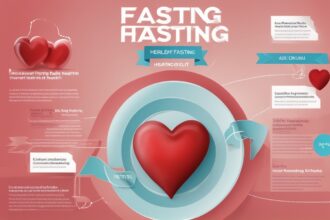Intermittent fasting (IF) has gained significant attention in recent years as a powerful tool for weight loss, improved metabolic health, and even longevity. But did you know that intermittent fasting heart benefits are also a major reason why many health experts advocate for this eating pattern? By alternating periods of eating with periods of fasting, IF can positively impact cardiovascular health in numerous ways. In this article, we’ll explore how intermittent fasting can support a healthier heart, backed by scientific evidence and practical insights.
What Is Intermittent Fasting?
Intermittent fasting is not a diet in the traditional sense but rather an eating pattern that cycles between periods of fasting and eating. Popular methods include the 16/8 method (fasting for 16 hours and eating during an 8-hour window), the 5:2 diet (eating normally for five days and restricting calories on two non-consecutive days), and alternate-day fasting. While weight loss is often the primary goal, the benefits of IF extend far beyond shedding pounds, particularly when it comes to heart health. By giving your body a break from constant digestion, intermittent fasting allows it to focus on repair and rejuvenation processes that can protect your cardiovascular system.
How Intermittent Fasting Improves Heart Health
The intermittent fasting heart benefits are rooted in its ability to address several risk factors for cardiovascular disease (CVD), the leading cause of death worldwide. Studies suggest that IF can lower blood pressure, reduce inflammation, improve cholesterol levels, and enhance insulin sensitivity—all critical factors for maintaining a healthy heart. During fasting periods, the body shifts from using glucose as its primary energy source to burning stored fat, a process called ketosis. This metabolic switch can reduce stress on the heart and improve overall cardiovascular function. Let’s dive deeper into the specific ways IF supports heart health in the sections below.
Reducing Blood Pressure and Stress on the Heart
High blood pressure, or hypertension, is a major risk factor for heart disease. Intermittent fasting has been shown to help lower blood pressure by reducing insulin levels and improving blood vessel function. A 2020 study published in the journal Nutrition and Metabolism found that participants following an intermittent fasting regimen experienced significant reductions in systolic and diastolic blood pressure. By giving the cardiovascular system a rest during fasting periods, IF may reduce the strain on the heart, leading to long-term benefits. If you’re interested in learning more about managing blood pressure naturally, check out our post on Natural Ways to Lower Blood Pressure.
Improving Cholesterol and Triglyceride Levels
Another key aspect of intermittent fasting heart benefits is its impact on lipid profiles. High levels of LDL (“bad”) cholesterol and triglycerides are associated with an increased risk of heart disease. Research indicates that IF can lower LDL cholesterol and triglyceride levels while increasing HDL (“good”) cholesterol. A study in the American Journal of Clinical Nutrition found that alternate-day fasting led to a significant reduction in triglycerides among participants. By improving these markers, intermittent fasting helps prevent the buildup of plaque in the arteries, reducing the risk of atherosclerosis. For more on cholesterol management, read our guide to Understanding Cholesterol and Heart Health.
Reducing Inflammation and Oxidative Stress
Chronic inflammation and oxidative stress are underlying contributors to heart disease. Intermittent fasting has been shown to reduce markers of inflammation, such as C-reactive protein (CRP), and decrease oxidative damage in the body. During fasting, the body undergoes autophagy, a cellular cleanup process that removes damaged cells and reduces inflammation. A 2019 review in the Journal of Translational Medicine highlighted how IF can combat inflammation and protect against cardiovascular damage. By mitigating these harmful processes, intermittent fasting offers a protective effect on the heart. If inflammation is a concern for you, explore our article on Anti-Inflammatory Foods for Heart Health.
Enhancing Insulin Sensitivity and Preventing Diabetes
Insulin resistance and type 2 diabetes are closely linked to heart disease. Intermittent fasting can improve insulin sensitivity, helping the body regulate blood sugar levels more effectively. When insulin levels are balanced, there’s less strain on the cardiovascular system, and the risk of developing diabetes—a major heart disease risk factor—decreases. Research published in Cell Metabolism demonstrated that intermittent fasting improved insulin sensitivity in individuals at risk for diabetes. By incorporating IF into your lifestyle, you may not only support your heart but also reduce the likelihood of metabolic disorders. Learn more about diabetes prevention in our post on Managing Blood Sugar for Heart Health.
Practical Tips for Starting Intermittent Fasting
While the intermittent fasting heart benefits are compelling, it’s important to approach this eating pattern with caution, especially if you have existing heart conditions or other health concerns. Start with a beginner-friendly method like the 16/8 plan, and gradually increase fasting duration as your body adapts. Stay hydrated during fasting periods, and focus on nutrient-dense foods during eating windows to support heart health. Consult with a healthcare provider before beginning IF, particularly if you’re on medication or have a history of cardiovascular issues. For additional guidance, check out our beginner’s guide to Getting Started with Intermittent Fasting.
Disclaimer: The information provided in this article is for educational purposes only and should not be considered medical advice. Intermittent fasting may not be suitable for everyone, especially individuals with certain medical conditions or those who are pregnant, breastfeeding, or underweight. Always consult with a qualified healthcare professional before making significant changes to your diet or lifestyle, particularly if you have a history of heart disease or other health concerns.
References
- Nutrition and Metabolism: Effects of Intermittent Fasting on Blood Pressure and Cardiovascular Health (2020)
- American Journal of Clinical Nutrition: Alternate-Day Fasting and Lipid Profiles Improvements (2015)
- Journal of Translational Medicine: Intermittent Fasting and Inflammation Reduction (2019)
- Cell Metabolism: Intermittent Fasting and Insulin Sensitivity (2018)
- American Heart Association: Intermittent Fasting and Heart Health Overview (2021)
This content is for informational purposes only and not a substitute for professional advice.






